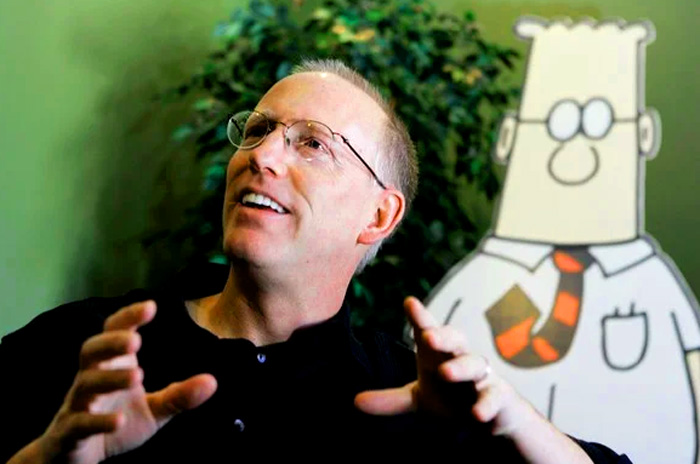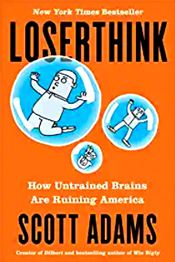Scott Adams Has Some Ideas For A Calmer Internet
Article by Wired Magazine, November 30, 2019
"After expressing support for Donald Trump in 2016, Dilbert creator Scott Adams estimates that he lost about 30 percent of his income and 75 percent of his friends. He says that that level of political polarization has created a climate of genuine fear.
'People will come up, and they’ll usually whisper—or they’ll lower their voice, because they don’t want to be heard—and they’ll say, ‘I really like what you’re doing on your Periscope, and the stuff you’re saying about Trump,'' Adams says in Episode 389 of the Geek’s Guide to the Galaxy podcast. 'They’re actually afraid to say it out loud.
They literally whisper it to me in public places.'
Adams blames the current climate on social media and a clickbait business model that rewards sensationalism over fact-based reporting.
Since the technology is here to stay, he says we’re going to need new societal norms to help foster a calmer, more constructive political discourse.
'When society changes, every now and then you need a new rule of manners,' he says. 'So for example, when cell phones were invented, you needed a new set of rules about where can you use them and can you do it in a restaurant, etc. And social media has gotten so hot, I thought maybe we need a few new rules.'
He lays out two such rules in his new book, Loserthink.
His first proposal, which he calls the '48-hour rule,' states that everyone should be given a grace period of a couple of days to retract any controversial statement they’ve made, no questions asked. 'We live in a better world if we accept people’s clarifications and we accept their apologies, no matter whether we think—internally—it’s insincere,' he says.
His other idea is the '20-year rule,' which states that everyone should be automatically forgiven for any mistakes they made more than two decades ago—with the exception of certain serious crimes.
It used to be the case that people’s thoughtless remarks and embarrassing gaffes would naturally fade into obscurity, but social media has created a situation where it’s easy to endlessly dredge up a person’s worst moments." - Wired Magazine
Above article by Wired Magazine, November 30, 2019



